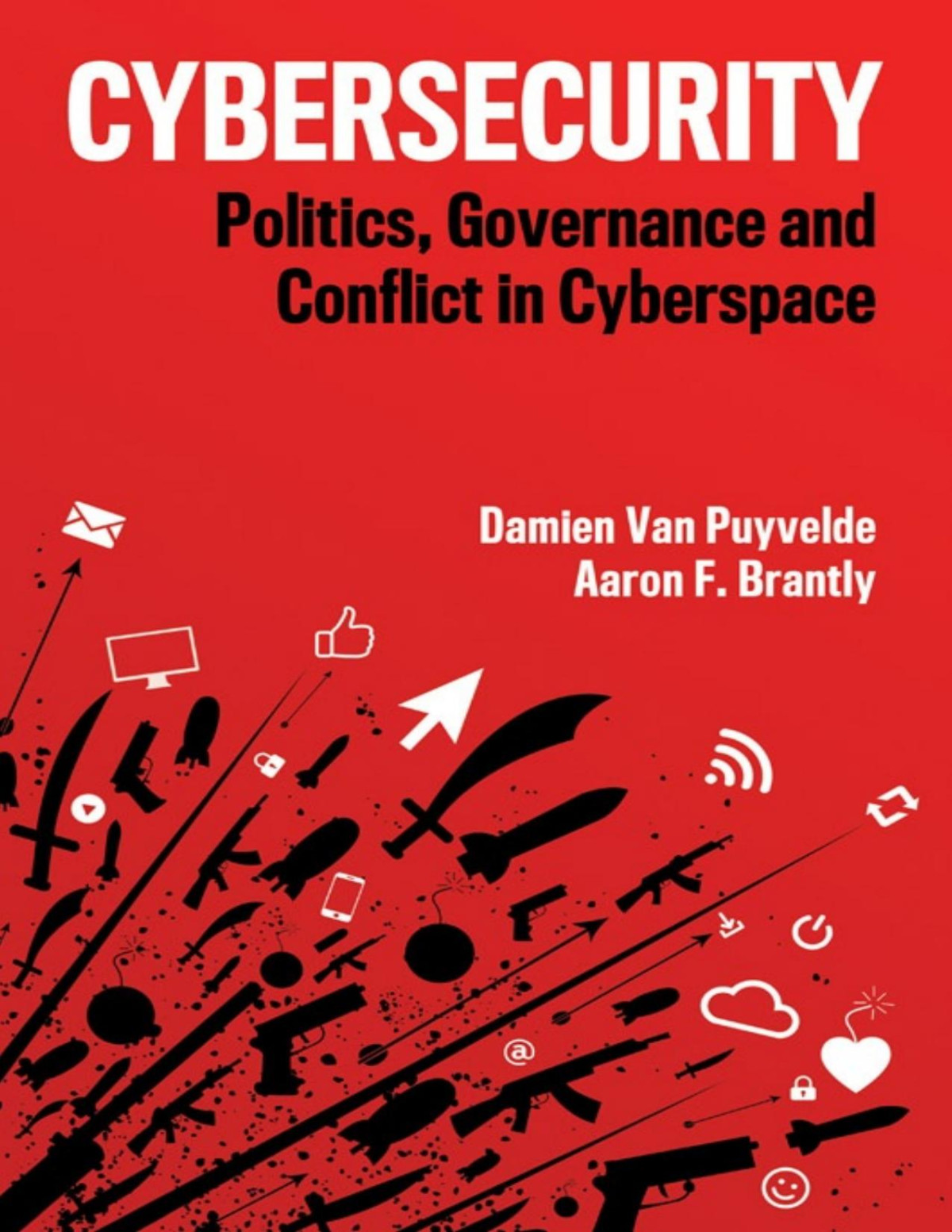Cybersecurity Politics Governance and Conflict in Cyberspace First Edition by Damien Van Puyvelde, Aaron F. Brantly 9781509528134 150952813X
$50.00 Original price was: $50.00.$25.00Current price is: $25.00.
Cybersecurity Politics Governance and Conflict in Cyberspace First Edition Damien Van Puyvelde, Aaron F. Brantly – Ebook PDF Instant Download/Delivery, ISBN: 9781509528134, 150952813X

Product details:
- ISBN 10: 150952813X
- ISBN 13: 9781509528134
- Author: Damien Van Puyvelde, Aaron F. Brantly
Cybersecurity
Politics, Governance and Conflict in Cyberspace
In the last decade, the proliferation of billions of new Internet-enabled devices and users has significantly expanded concerns about cybersecurity. But should we believe the prophets of cyber war or worry about online government surveillance? Are such security concerns real, exaggerated or just poorly understood?
In this comprehensive text, Damien Van Puyvelde and Aaron F. Brantly provide a cutting-edge introduction to the key concepts, controversies and policy debates in cybersecurity. Exploring the interactions of individuals, groups and states in cyberspace, and the integrated security risks to which these give rise, they examine cyberspace as a complex socio-technical-economic domain that fosters both great potential and peril.
Structured around ten chapters, the book explores the complexities and challenges of cybersecurity using case studies – from the Morris Worm and Titan Rain to BlackEnergy and the Cyber Caliphate – to highlight the evolution of attacks that can exploit and damage individual systems and critical infrastructures. With questions for group discussion and suggestions for further reading throughout, Cybersecurity will be essential reading for anyone interested in understanding the challenges and opportunities presented by the continued expansion of cyberspace.
Table contents:
1 The expanding scope of cybersecurity
A brief history of the computer
An open network of networks
The spread of the Internet
The rise of cyber threats
A global security issue
Discussion questions
Further resources
Notes
2 What is cyberspace?
Defining cyberspace
Physical-network layer
Logical-network layer
Persona layer
Understanding cyberspace: The technical value
Discussion questions
Further resources
Notes
3 Governing cyberspace
Technical governance of cyberspace
The political, social and economic governance of cyberspace
The laws and norms of cyberspace
Internet governance is a complicated mess
Discussion questions
Further resources
Notes
4 Cyber capabilities and insecurity
The arsenal of possibilities
Developing offensive cyber capabilities
Criminal cyber-capability development
State cyber-capability development
The effects and characteristics of cyber capabilities
Cyber capabilities: A weapon?
Discussion questions
Further resources
Notes
5 National cybersecurity and strategy
Cyber power, national security and strategy
China: controlling information
Russia’s holistic approach
The United States: A pro-active cyber power
Common lenses and challenges
Discussion questions
Further reading
Notes
6 Cyber war
War in the fifth domain
Cyber war is coming!
Will cyber war take place?
From cyber war to cyber conflict
Cyberspace and military operations
Conclusion
Discussion questions
Further resources
Notes
7 Non-state threats: From cybercrime to terrorism
Criminals
Hacktivists
Cyberterrorists
The non-state actor(s)
Discussion questions
Further reading
Notes
8 Organizing deterrence and defense in cyberspace
Technical cyber defense and deterrence by denial
Defense through deterrence by punishment
Conclusion: The painful reality
Discussion questions
Further resources
Notes
9 Cybersecurity and democracy
Democracy and security in cyberspace
A liberation technology
Whose cybersecurity?
Encryption and cyber (in)security
Conclusion
Discussion questions
Further reading
Notes
10 The futures of cybersecurity
Toward an ever more interconnected world: The Internet of Things
Big data and artificial intelligence
Human–machine interactions
Conclusion: Adapting to the evolving cybersecurity environment
People also search:
cybersecurity politics governance and conflict in cyberspace
cybersecurity politics governance and conflict in cyberspace pdf
what is cyber security governance
cyber security issues examples
what is cyber politics
You may also like…
Uncategorized
Politics & Philosophy - Anthropology
Computers - Information Systems
History - Military History
World War I in Central and Eastern Europe: Politics, Conflict and Military Experience Judith Devlin
Politics & Philosophy - Government & Politics
Politics & Philosophy - Politics
Politics & Philosophy - Social Sciences
Governance Politics and the State 2nd Edition by Jon Pierre 9781349938599 1349938599
Computers - Security












